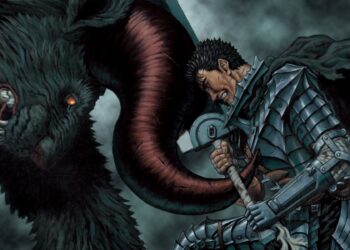Kratos and Zeus: A Father-Son Saga of Betrayal, Revenge, and Regret
The story of Kratos and Zeus stands at the center of the God of War franchise. This tale is woven with threads of betrayal, vengeance, and regret. Their relationship involves fierce confrontations and deep emotional strife. Let’s explore the heart of this conflict and the emotions of godly rage.
Did Kratos Actually Regret Offing the King of Olympus?
In God of War, a sense of regret permeates Kratos’s demeanor whenever Zeus is mentioned. The past haunts him, even after their epic battle ends. His ultimate revenge does not erase all of his remorse. Shadows of guilt linger around him.
Did Kratos feel bad killing Zeus? The game hints at it. He becomes quiet and defensive when Zeus’s name comes up. This reaction reveals a man burdened by his actions. Patricide weighs heavily on him, changing the warrior we know.
Why the Fury? Unpacking Kratos’s Anger Towards Zeus
To grasp any regret, we must revisit Kratos’s rage towards Zeus. This anger ignited from betrayal and a need for vengeance. Zeus did not just inconvenience him; he caused a monumental fall. This was far from a petty dispute.
Kratos’s fury stems from Zeus’s betrayal. Zeus weakens him and tricks him into pouring his essence into the Blade of Olympus. Why? To wield it against Kratos himself. Infamous father move of the year.
Yes, Zeus killed Kratos with that Blade. It marked a monumental moment of betrayal. Kratos, after overcoming so many challenges, was blindsided. Instead of gratitude, he vowed revenge. That becomes his life’s fire, driving his spirit forward.
Father and Son: A Relationship Forged in Olympus and Blood
The tragedy deepens with their inherent bond. Kratos was a demigod, son of Zeus, unaware for much of his life. This truth complicates their intense conflict. Their clashes were not just battles but family affairs.
Their encounters were brutal. They transcended typical godly clashes. This was not a casual argument over ambrosia. These battles shook the earth with familial rage.
Forgiveness and Redemption: Kratos’s Long Road to Peace
Interestingly, Kratos’s journey isn’t solely destructive. It explores themes of forgiveness and self-forgiveness. Eventually, he learns to forgive himself for past crimes, including murders of his wife and daughter.
Pandora aids Kratos in facing memories of Athena’s death. This grief pushes him to confront painful truths. It proves that even a god can evolve beyond deep rage.
The Corruption of Zeus: From King of Gods to Tyrant
Zeus wasn’t always the tyrant we see in battle. The key to his corruption lies in Pandora’s Box. Its opening unleashed evils on the world and gods alike. Alas, Zeus was not exempt.
The darkness twisted him into a cruel ruler. Let us remember, he killed Kratos in God of War 2. Understandably, Kratos seeks revenge—a typical eye-for-an-eye scenario.
Immortality and Godhood: The Unkillable Spartan
For Kratos, death is a mere inconvenience. When Zeus struck him down, he did not disappear entirely. He wound up in the Underworld with Gaia. Through Titan magic, she revived him and returned him to the living world.
Kratos’s ascent to godhood is significant. He began as a demigod, son of Zeus. Later, he killed Ares to become the God of War. His journey from son to god marks a notable career advancement.
Atreus’s Visions: Does the Boy Know the Truth?
Does Atreus, Kratos’s son in the Norse saga, know of his father’s past? Hints suggest Atreus holds some awareness.
During their trip to Helheim, Atreus has a vision showing Kratos kill Zeus. This moment reveals that truths may be surfacing about Kratos’s past.
Beyond Zeus: Gods Kratos Regretted Slaying and Those Who Endured
Zeus wasn’t the only god who fell to Kratos’s wrath, but not all deaths weighed on him equally. Athena’s death stands out. He visibly mourned her loss, reflecting deep remorse and guilt.
Kratos also felt a chill after killing Heimdall in the Norse saga. He lost control momentarily, tapping into his old rage. This realization worried him, hinting at potential prophecy validations.
Despite his path of destruction, Kratos did not wipe out every Olympian. A few managed to escape his relentless pursuit. Some slipped away unharmed amid his vendetta.
Let’s get real; despite his power, Kratos isn’t the strongest being in fiction. Others pose real challenges. Characters like Thirteen, Beerus, Satoru Gojo, and Kizaru could overpower even him at times.
Returning to Zeus, we consider if he ever truly fell in broader mythology. In Greek myths, Zeus was never overthrown in a coup-like manner. He faced many foes but consistently triumphed, securing his position as ruler of the Olympian gods.
Motivations and Missed Opportunities: Kratos’s Choices
Ultimately, Kratos sought Zeus’s death simply for payback. His father killed him first. This classic revenge tale plays out against an Olympian backdrop.
Finally, we reflect on a darker moment—the boat captain left behind. Why did Kratos abandon him to the Hydra? Speculation links it to the captain’s earlier cowardice as he fled, leaving his crew behind to face danger alone. To Kratos, that betrayal was unforgivable.
The saga of Kratos and Zeus is complex and profound. Beyond being a game, it delves into family, betrayal, revenge, and the long road to forgiveness. It resonates because it mirrors our struggles to overcome past actions and strive for a brighter future—even for a god of war.










